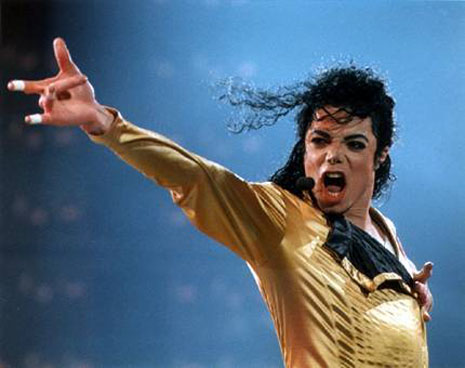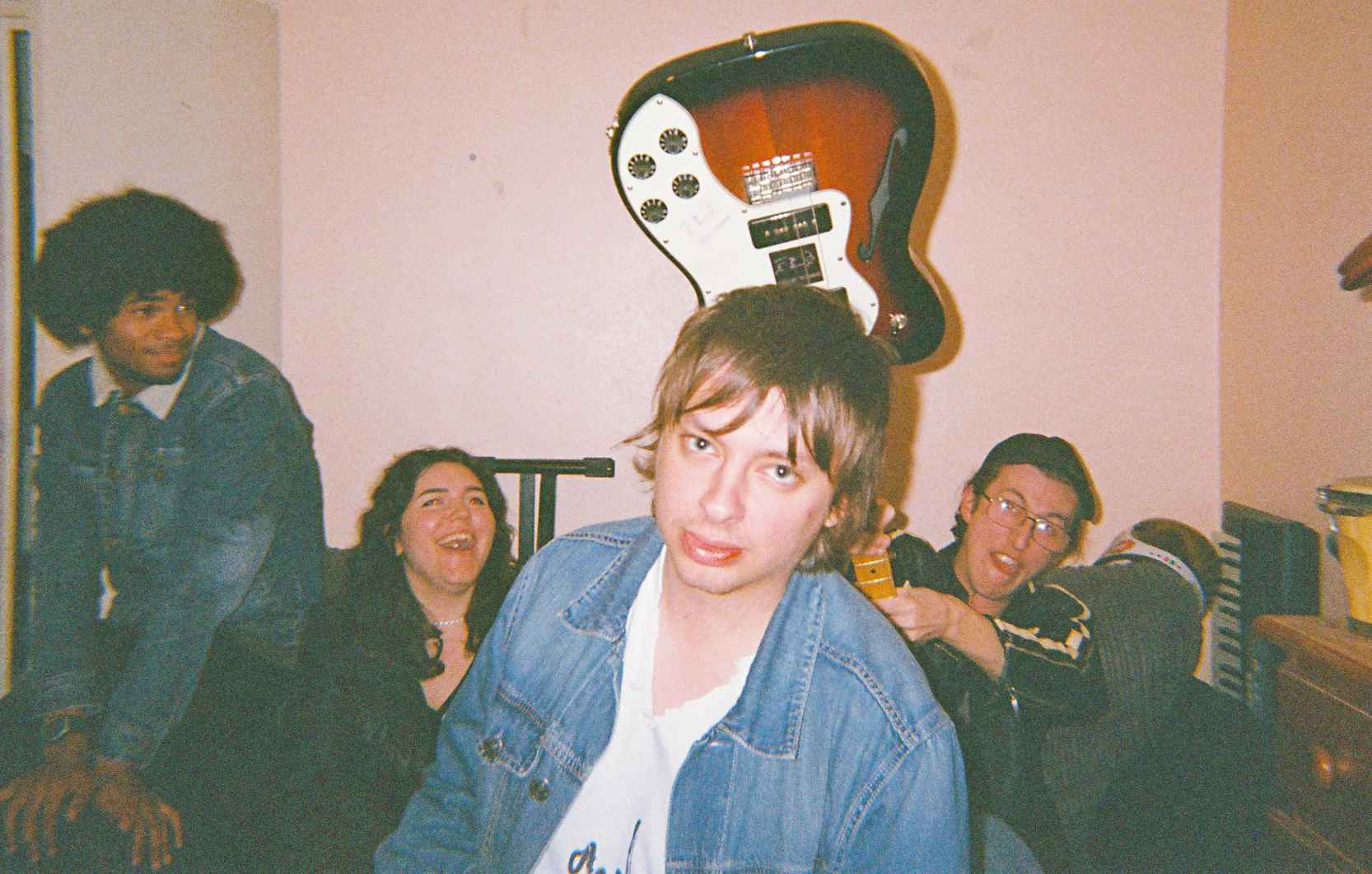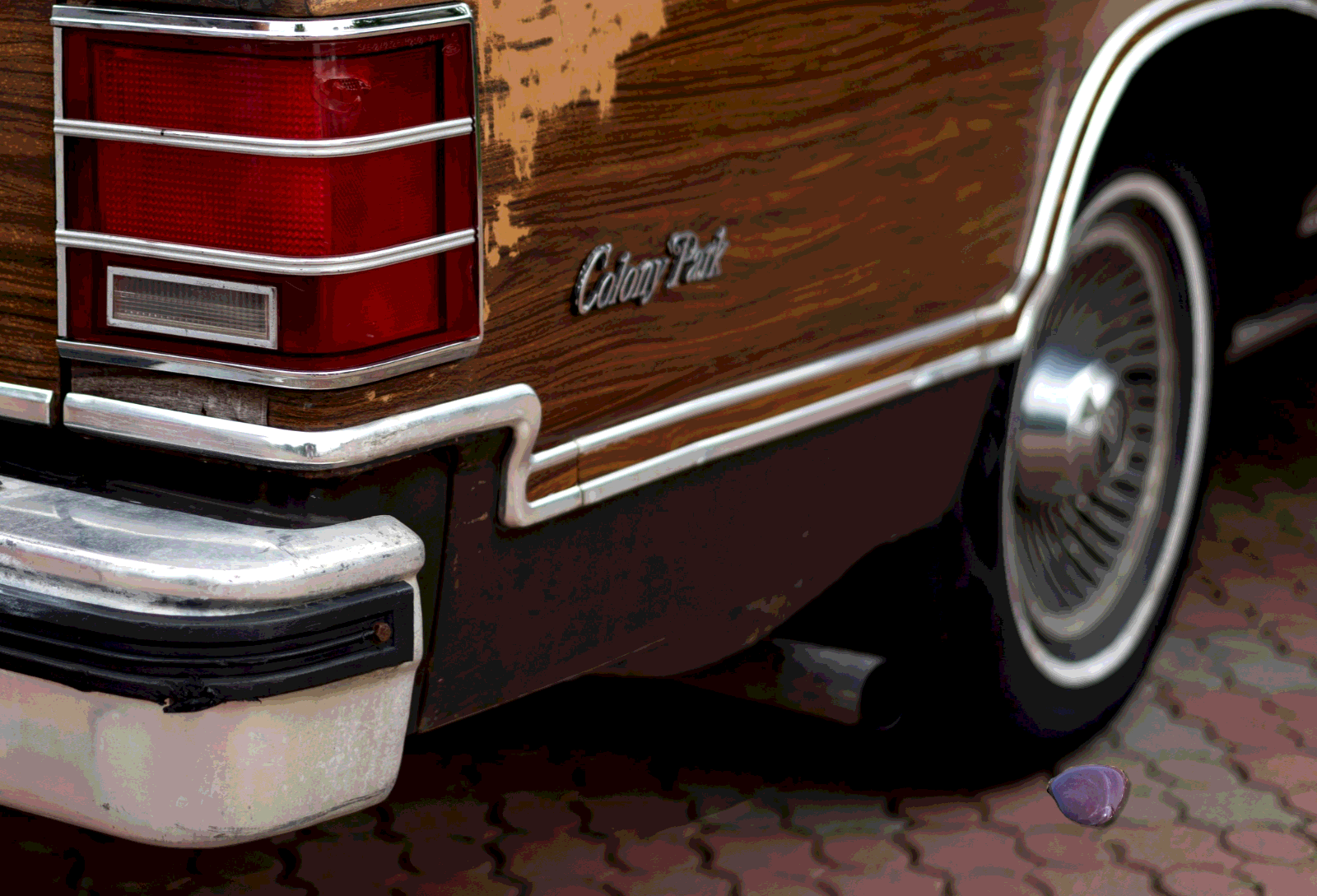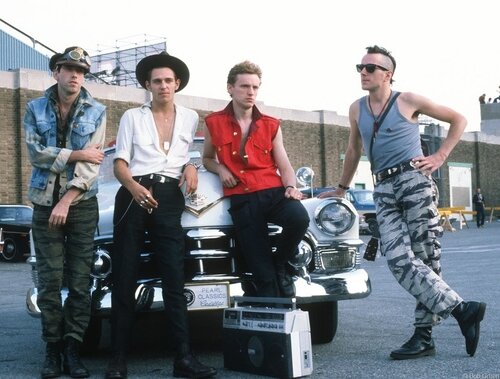John Oswald's 1989 album plunderphonics consists of 25 pieces in which samples are taken from a single performer and radically altered to create a wholly new composition, both challenging the idea of copyright (permission was neither asked nor granted) and exploring the possible atomic properties of an artist.
1989 was a good time to do this, as American pop radio had become a sham. Insipid dance music dominated charts that were largely doctored for them to do so, while on the ground, the people scattered to various camps of heavy metal, alternative music and "young country" each to grow into their own monsters off neglected in the dark. Michael Jackson was generally considered to be the chief culprit in uncoupling popular music from good music, and thus, the perfect subject for Oswald's experiments.
 Thriller was a perfectly formed pop record. I never owned a copy
of it because back in 1982 and for a couple of years thereafter, you didn't need to; it was everywhere, all the time. Buying a copy of Thriller would have been like buying the air you breathe. It didn't matter that Off the Wall was a far superior artistic statement; Thriller was a paradigm shift. Bad came out five years later, just as the arc of MJ's ascension in popular culture started to dive; and while Bad was
undeniably popular, it wasn't Thriller. The music on Bad largely was an
atomized, deconstructed version of what made Thriller so widely compelling.
Outside of the uplifting ballad "Man in the Mirror," the songs on the
album seemed nervous and desperate, hiccuping thug boasts that no one
really believed. Bad was
the last time the Michael Jackson really mattered as a musical entity.
He was still the King of Pop, but like most modern monarchies, it was a
largely ceremonial position, and everyone but perhaps the King himself
recognized it as such. But also as with monarchies, the masses loved their pageantry, and string of sub-Bad music dominated the radio arguably until 1991 when a different sort of troubled kid from Seattle dominated our attention.
Thriller was a perfectly formed pop record. I never owned a copy
of it because back in 1982 and for a couple of years thereafter, you didn't need to; it was everywhere, all the time. Buying a copy of Thriller would have been like buying the air you breathe. It didn't matter that Off the Wall was a far superior artistic statement; Thriller was a paradigm shift. Bad came out five years later, just as the arc of MJ's ascension in popular culture started to dive; and while Bad was
undeniably popular, it wasn't Thriller. The music on Bad largely was an
atomized, deconstructed version of what made Thriller so widely compelling.
Outside of the uplifting ballad "Man in the Mirror," the songs on the
album seemed nervous and desperate, hiccuping thug boasts that no one
really believed. Bad was
the last time the Michael Jackson really mattered as a musical entity.
He was still the King of Pop, but like most modern monarchies, it was a
largely ceremonial position, and everyone but perhaps the King himself
recognized it as such. But also as with monarchies, the masses loved their pageantry, and string of sub-Bad music dominated the radio arguably until 1991 when a different sort of troubled kid from Seattle dominated our attention.
Oswald's inversion of Bad's title track furthers the skittering that lays in the original. The song is savaged, diced by Oswald's digital Ginsu and brutally pieced back together as a convulsive eruption of ego devolving into the chirping of crickets and cold howling wind, eerily predicting the coming change in the public perception of Jackson as he transformed himself from beloved to spectacle. It is interesting that no matter how finely Oswald cuts this music, each tiny morsel is immediately identifiable. Each molecular grunt is Michael Jackson, a particle that in the right medium could replicate the whole. It's not until we get to the arid crickets and wind section that we lose touch with the source.
Oswald distributed his album to radio stations never offering it for sale, as if to undercut the contentious nature of the work - this was the time of hip-hop's great evolution, and equating sampling with theft was a hot button topic. Michael Jackson, like any king detecting a coup, wasn't havin' it. From Wikipedia
All undistributed copies of plunderphonic were destroyed after a threat of legal action from the Canadian Recording Industry Association on behalf of several of their clients (notably Michael Jackson, whose song "Bad" had been chopped into tiny pieces and rearranged as "Dab") who alleged copyright abuses. Various press statements by record industry representatives revealed that a particular item of contention was the album cover art which featured a transformed image of Michael Jackson derived from his Bad cover.
After that, plunderphonics could only be found on the down low. I'd obtained a third-generation cassette copy in the mail from sources that requested to remain anonymous. Its cover was incidentally whitewashed by successive photocopying. While its dissections of Dolly Parton, Stravinsky, and Elvis are good, "Dab" is the standout track. It contains the essence of a Michael Jackson song - the throb and the immediate appeal of his panting delivery, his particular style of fey menace - but it also underscored something larger about the artist; that there was something atomically distinct about Michael Jackson, and that particular isotope was reaching its half-life - the point where an elemental mutation has lost half its value to decay and that momentum is then unstoppable.The tensions among the song, the subject, the artist, and the process were too much, and it all just falls apart.
Michael Jackson died on Tuesday, June 25, 2009 from cardiac arrest in Los Angeles while preparing for a comeback tour that was to include a 50-night run in London's O2 Arena.
Here is the whole track:


























